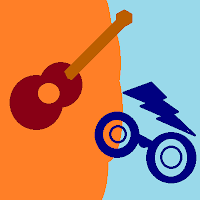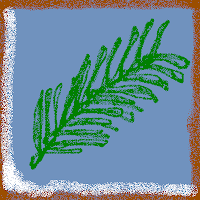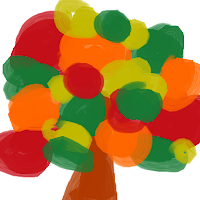EUL Mu vivu revolve um artu, teatru i musiku.
SPA Mi vida gira en torno al arte, el teatro y la música.
FRA Ma vie tourne autour de l'art, du théâtre et de la musique.
ITA La mia vita ruota intorno all'arte, al teatro e alla musica.
ENG My life revolves around art, theater and music.
DEU Mein Leben dreht sich um Kunst, Theater und Musik.
DAN Mit liv drejer sig om kunst, teater og musik.
NED Mijn leven draait om kunst, theater en muziek.
EST Minu elu keerleb kunsti, teater ja muusika ümber.
POL Moje życie kręci się wokół sztuki, teatru i muzyki.
ROM Viața mea se învârte în jurul artei, teatrului și muzicii.
UKR Моє життя обертається навколо мистецтва, театру та музики.
RUS Моя жизнь вращается вокруг искусства, театра и музыки.
ESP Mia vivo ĉirkaŭas arton, teatron kaj muzikon.
Gramatiku
Mu vivu [mu: vi:'vu:] - my life (in contrast to 'si vivi - their lives')
revolve um [re:'vol've: um] - revolves around/is about ('um' is our new best friend)
artu, teatru i musiku - (the) arts, theatre and music (all neuter terms hence the '-u')
In seru mu spile lu gitaru i kante uni songi - In the evening I play the guitar and sing a few songs.
Kes tu pense? What do you think? Was denkst du? Qué te parece? Qu'en pensez-tu? Co myślisz? Что ты думаешь?
© 2018 Eulingu















